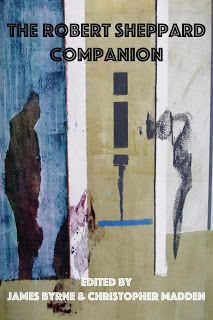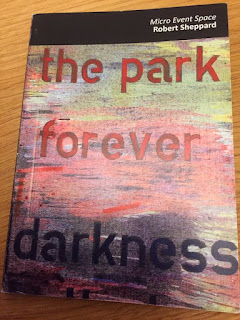Last night I took part in
Dali Muru and the Polyphonic Swarm (formerly FITH) + Poetry Special Bill (ie. 3 Poets)
at The Grosvenor Auditorium (G.17), in the Grosvenor East building of Manchester Metropolitan University, on the Oxford Road, at : https://www.mmu.ac.uk/grosvenoreast/, part of the English Futures conference.
This event was open to the general public, not just to delegates of the conference, so there was a mix between some local Manchester poetry people, delegates to what sounded like a positive conference (at a time when English is under attack, as one of the 'low-yielding arts degrees' that one of my poems spoke of), and friends of Grace Atkinson!
Here's what I wrote about my reading last week. Of course, having written 2 and half volumes of sonnets that have tracked political events (as well as transposed our strong sonnet tradition in English) , I know that a week is a long time in writing political poetry, but, boy, I didn't expect to lose Bo quite so quickly. I have been wondering whether there isn't one more poem to write, but the poem I ended the reading with still suffices. This is news that stays history. Still, as long as there is hubris, there's hope! I wrote:
I shall be reading as part of this Poetry Special Bill: Three poets join forces showcasing what the organisers call the best innovative and experimental poetry, introduced by Nikolai Duffy, poet, critic and lecturer at Manchester Metropolitan University.
I shall be reading briefly from my books published during the Pandemic, and at more length from poems written during that period, in what will be my first solo reading for quite some time. (I am still reading my diaries through and before the Pandemic I was reading somewhere every so often, usually every few weeks. That feels like another world, but one I should like to revisit.) The last reading I did is recorded here, with set list and links, just before it all blew off: Pages: Robert Sheppard: The Broken Spine reading, Southport (set list).
It was satisfying to find I could still do it! Even with a cough for unwanted punctuation!
Of course, Coronavirus also took over as the main subject of my sequential re-writing of the English Sonnet Tradition, though Boris Johnson (Bo) remains the focus that he gradually became in Book One, The English Strain, and Brexit grew into a theme (it is but mentioned in passing in one of the earlier poems). Bo (and these two twins) has steadily been the poetic focus (the genius, even) throughout Books Two and Three (Bad Idea and the unpublished British Standards). There's loads on this blog about this project. Best starting point is: Pages: Transpositions of Hartley Coleridge: the end of British Standards (and of The English Strain project) (robertsheppard.blogspot.com)
Selecting what I’m going to read has taught me that Bo is the gift that just keeps on giving! I also wrote last week.
As I jokily explained before I started reading I'd half lost my voice (a cough, not Covid) and my subject matter. In the time between selecting what to read and the gig, Bo had 'resigned'. How differently the poems sounded. But they still sounded OK to me (despite the croaky voice). These are the notes I spoke from:
For some time I have been obsessed with the innovative
sonnet, and more recently making versions, overdubs, unthreadings, or
transpositions of traditional English Petrarchan sonnets, and I have found
myself working through Petrarch, Milton, Wyatt, Surrey, Charlotte Smith,
Elizabeth Barrett Browning, and also Michael Drayton. The first group are
published in The English Strain, the Drayton versions in Bad Idea. Both
books are on sale tonight.
Here’s one from The English Strain. You’ll see
that it picked up a theme: Brexit! This is Elizabeth Barrett Browning recast
into the voice of a certain politician’s fictional put-upon and unforgiving mistress
in 2018: and then I read one of them. (See here for a different one: from Non- Disclosure Agreement: Brazilian Sonnets | Stride magazine)
In Bad Idea I decided to (largely) continue the
Brexit theme and the whole book transfigures Drayton’s 1614 sonnet sequence Idea.
That’s the name of his dark-lady muse. Bo is my name for you know who. Here’s
a 2019 version of the famous anthology piece: ‘Since there’s no help…’ (See here for different ones: Sonnets from Bad Idea | IT (internationaltimes.it))
I want to read from book three, British Standards,
where I turn my transformational attentions to the Romantics. There are
versions of Mary Robinson, John Keats, John Clare and Shelley in clusters as
well as some individual texts by Langdon and Coleridge, Mary Tighe and Horace
Smith, and more. BUT I am going to read most of one section, 13 of the 14, my Wordsworth
variations, which trace the hubris of Brexit ‘getting done’ colliding with the
ill-preparedness for Covid 19. They were written February and March 2020. Wordsworth’s
were mainly written 1802-3, and concerned his return to France, which was, and
is, it is worth pointing out, in Europe!
(I write about the 'Liberties from Wordsworth' sequence here: Pages: The last of my Wordsworth versions in 'British Standards' (Book Three of 'The English Strain') (robertsheppard.blogspot.com) and here: Pages: Robert Sheppard: Wordsworth’s Sonnets Transposed for the 21st Century appears on Zwiebelfish! And here's a sample video, of a poem from the sequence.)
Fast forward to March this year, I told my audience. I almost ran out of sonnets, but events permitted me to venture into European Romanticism, and I completed the book by remoding a non-English sonnet that refers to the area of Europe we now call Ukraine. This is the last poem of the book. My last poem tonight. Thanks for listening…
And I added: 'Thanks for laughing!' because it was a knowing, attentive, and responsive audience (which I couldn't see from the stage). And I very much enjoyed reading, had no nerves, in fact. Bravo! Back on form, back on stage! I write about that final poem (as I said, despite the political upheavals going on at the moment, it's still the final poem of the book(s)) HERE:
The rest of the bill (I read first) was:
Grace Atkinson, an award-winning poet from East London. She has had poems most recently published in Stand, Dazed, The North, Poetry Salzburg Review, amongst others. She energetically launched her new Like This Press pamphlet, and demonstrated a variety of modes from lyric to found text.
Sarah Cave, a writer, academic and editor at Guillemot Press and has published two full-length collections and several pamphlets, artists’ books and collaborations. Sarah performed a fascinating ritual-poem about Jesus' sister (who seemed at certain points to transform into a cat). Fascinating work. I have here Like Fragile Clay still to read.
Dali Muru and the Polyphonic Swarm sit in the middle of a Venn diagram consisting of medieval inspired troubadour poetry, cinema soundtrack and primordial electronics. Initially known as FITH formed in Berlin by the duo writer/filmmaker/vocalist Dalia Neis, and the composer/producer Enir Da, their project expanded to become a revolving collective of musicians and poets spread out across a Paris/Manchester/Berlin axis.
The trains back to Liverpool (the one bringing us caught fire on the way and turfed us at at Newton-le-Willows) were erratic, so we managed to catch a very slow train, and had to miss this last part of the evening. Thanks everyone, particularly Nikolai Duffy for compering (AND for reading his illustrative prose poems between each act!).
https://englishsharedfutures.co.uk/fringe-events/
This was a fringe event for English: Shared Futures 20022, which aims to celebrate and explore the discipline’s intellectual strength, diversity and creativity and explore its futures in the nations of the UK and across the world.










